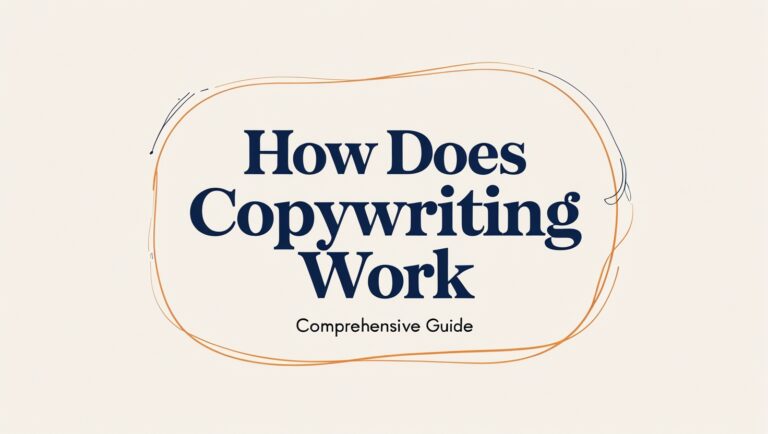How Much Opportunity Is There in Copywriting?
Copywriting continues to shape how businesses connect with their audiences. Whether it is through compelling website copy, persuasive sales emails, or attention-grabbing social media captions, the impact of well-crafted words is undeniable. In this article, you will learn just how significant the opportunities in copywriting are, the factors driving its growth, and the steps you can take to position yourself as a high-earning, in-demand professional in today’s market.
The Growing Demand for Copywriting
Copywriting is at the heart of almost every marketing strategy. It involves crafting written content that prompts a specific action, such as signing up for a newsletter, making a purchase, or simply learning more about a product. As businesses become more aware of the importance of a powerful brand voice, they invest in skilled copywriters to communicate messages that resonate with consumers.
Moreover, the digital transformation sweeping through every industry has triggered an insatiable need for fresh, optimized, and persuasive content. From small startups to international corporations, organizations of all sizes require ongoing copywriting support. This constant demand showcases why many experts believe that pursuing a copywriting career is a wise choice for those seeking stable and lucrative opportunities.
Understanding the Driving Forces
- Digital Marketing Expansion
As social media platforms proliferate, so does the need for marketing campaigns that pique consumer interest. Copywriting is a key ingredient in these campaigns, providing the strategic messaging needed to boost sales and brand awareness. - E-Commerce Boom
Today, more people shop online than ever before. High-quality product descriptions, email funnels, and ad copy are critical in converting casual browsers into paying customers. Copywriters who specialize in e-commerce can command premium rates thanks to their ability to drive revenue. - Personal Branding Trend
Influencers, coaches, and professionals seeking to build thought leadership want to stand out. Well-written posts, ebooks, and presentations strengthen reputations and drive audience engagement. Skilled copywriters are therefore instrumental in helping personal brands grow.
In essence, if you excel at understanding your audience and communicating a message that inspires action, there is undoubtedly a place for you in today’s copywriting industry.
Is There a Demand for Copywriters?
Absolutely. Businesses across all sectors compete for limited consumer attention. Copywriters play a critical role by shaping brand voice and messaging to stand out among the noise. According to many marketing studies, companies that prioritize content creation and SEO often outperform their competitors. This means a constant need for written assets, from compelling website pages to lead-generating email campaigns.
In addition, freelance platforms and job boards frequently list new projects for copywriters, reflecting a steady supply of work. Whether you prefer a corporate environment, a freelance lifestyle, or a hybrid approach, you will find no shortage of opportunities. The demand is only set to increase as more business transactions shift online and audiences grow more discerning about the content they consume.
Is It Hard to Find a Job as a Copywriter?
While there is robust demand for copywriters, the job market can be competitive. Companies often seek professionals who demonstrate both creativity and marketing acumen. However, if you build a strong portfolio and develop strategic skills such as search engine optimization (SEO) and conversion optimization, standing out becomes much easier.
In addition, networking plays a pivotal role in landing copywriting jobs. Attending industry events, engaging in online forums, and showcasing your work on professional platforms can open doors to new clients or full-time roles. Once you establish a reputation for delivering quality copy on time, you will likely enjoy consistent opportunities and long-term relationships with clients.
Are Copywriters in Demand in the UK?
Yes, copywriters are very much in demand in the UK. The country’s dynamic startup ecosystem, thriving tech scene, and established corporate sector all create a broad market for skilled writers. Many UK businesses recognize that well-crafted content is essential for global reach, particularly those looking to expand into English-speaking markets worldwide.
Moreover, major cities such as London, Manchester, and Edinburgh offer diverse opportunities. From finance to fashion to technology, you can specialize in different niches. Companies also often value native English writers for crafting region-specific content, giving UK-based copywriters a distinct advantage in local and international projects.
Is There a Lot of Competition in Copywriting?
Competition exists, but it can be navigated successfully if you differentiate yourself. Many aspiring writers start off writing generic blogs, product descriptions, or social media posts. However, specializing in specific industries—like health and wellness, SaaS (Software as a Service), or financial technology—can help you stand out.
Moreover, adding complementary skills to your repertoire strengthens your competitive edge. For instance, expertise in data analysis, UX writing, or marketing automation platforms broadens the scope of projects you can handle. By consistently delivering polished, conversion-focused copy, you build a reputation that will help you shine even in a crowded marketplace.
Will AI Replace Copywriters?
Many industry observers believe that while AI-generated content tools can assist with repetitive tasks, they will not replace human copywriters entirely. AI can generate drafts or ideas, but it often struggles to capture a brand’s unique voice or tap into human emotions with nuance and subtlety. Clients still need the creative insight and empathy that come from genuine human understanding.
Furthermore, trends change rapidly, and successful copywriters adapt their language accordingly. This agility often requires nuanced cultural awareness and the ability to incorporate real-time feedback. In other words, AI might handle some of the heavy lifting, but it is the skilled copywriter who refines the final message to resonate authentically with the target audience.
Is Copywriting a High-Paying Job?
Copywriting can be financially rewarding, especially if you build specialized expertise. Many top-tier copywriters charge premium rates for sales pages, email funnels, and conversion-focused content. Earnings can also scale significantly through freelance or consultancy work, where payment is tied to results.
However, not all copywriting roles offer high salaries from the start. Entry-level positions or generalist content roles may have modest pay. With a proactive approach, continuous learning, and the development of niche skills, you can transition into more lucrative projects. Some experienced copywriters even negotiate royalties or performance-based pay structures, which can boost income far beyond a typical salary.
Can a Copywriter Be a Millionaire?

Yes, though it requires focus, strategy, and scalability. Certain copywriters have achieved millionaire status by specializing in direct-response copy, sales funnels, or writing for high-revenue industries. Others have built agencies or leveraged their writing skills to create digital products like courses, ebooks, or coaching services.
One example is the phenomenon of copywriters who craft best-selling product launches. They often charge high fees plus a percentage of the sales, allowing them to earn substantial sums from a single campaign. Another route is through personal brand development, attracting high-profile clients and commanding top-dollar fees. While not every copywriter will reach this level, the potential is certainly there for those with the right mindset and dedication.
What Is the Best Copywriter Salary?
The best salary for a copywriter varies based on experience, location, and industry. In some corporations, top-level copywriters can earn six figures or more, especially if they assume managerial or strategic roles. For instance, leading creative directors or content strategists often start out as copywriters and transition into positions that offer higher remuneration.
Freelance copywriters with a strong personal brand can earn equivalent—or even more—by charging per project or on retainer. For example, a seasoned direct-response copywriter might charge thousands of dollars for a single sales page. In some cases, copywriters who focus on industries like finance or tech can negotiate rates higher than the market average, making annual incomes of $100,000 or more entirely feasible.
Is Copywriting a High-Income Skill?
Copywriting is frequently hailed as one of the top high-income skills. Words are the primary medium through which businesses communicate the value of their products and services. If your writing consistently delivers measurable results—such as increases in conversion rates, lead generation, or customer retention—clients will pay a premium for your expertise.
Additionally, copywriting is versatile. You can pivot across different platforms—email, social media, blogs, direct-mail campaigns, or video scripts—and still apply the same persuasive principles. This flexibility allows you to cater to a broad market and take on various projects simultaneously. Over time, as your portfolio grows, so does your ability to command higher fees.
Is Copywriting Profitable in 2025?
Industry experts project that copywriting will remain profitable in 2025 and beyond. The world’s increasing reliance on digital platforms has only heightened the need for strong online content. Moreover, new technologies like augmented reality, virtual reality, and interactive ads will open further avenues for copywriters who embrace innovation.
In addition, more brands will expand globally, requiring culturally nuanced copy that AI tools may struggle to produce. If you stay ahead of trends, invest in ongoing education, and maintain strong relationships with clients, you can expect a healthy income from copywriting for years to come. The key is to be proactive and adaptable, recognizing that growth opportunities often emerge in unexpected places.
Key Skills and Strategies for Success
To thrive in copywriting, you need a blend of creativity, technical know-how, and business acumen. Consider focusing on the following areas:
- Audience Research
Effective copy starts with understanding your audience’s challenges, desires, and motivations. Conduct surveys, analyze demographics, or read customer reviews to glean valuable insights. - SEO and Keyword Optimization
A thorough understanding of keyword research and on-page SEO ensures that your copy is both engaging and easy to discover via search engines. This combination boosts visibility and helps drive traffic. - Conversion-Focused Writing
Whether it is a sales page or a simple blog post, the ultimate goal often involves driving an action. Familiarizing yourself with conversion psychology and persuasive writing techniques can greatly amplify your results. - Adaptability
Today’s copywriters might write a product description one day and a script for a brand’s YouTube ad the next. Being flexible with your format and tone allows you to serve more clients effectively. - Networking and Personal Branding
Building relationships with potential clients and industry professionals can significantly expand your opportunities. Sharing valuable content on social media platforms or launching your own blog helps you establish credibility.
Practical Case Study: Small Online Store to Six-Figure Success
Consider a small health supplement store that struggled to convert website visitors into paying customers. The owner hired a copywriter who revamped the product descriptions, emphasizing the unique benefits and leveraging customer testimonials. As a result, conversion rates increased by 40% within a month. Moreover, targeted email campaigns further nurtured leads, turning a previously slow-moving inventory into a thriving online business.
This example demonstrates how powerful the right words can be in influencing consumer behaviour. When you master this craft, your services become indispensable to any brand looking to grow.
Balancing Creativity with Data
Modern copywriting involves more than just creativity. Data analytics, A/B testing, and performance metrics all play a critical role in validating the effectiveness of your copy. For instance, you might test two versions of a headline to see which one garners higher click-through rates. The results can then guide future campaigns and further refine your writing approach.
Furthermore, platforms such as Google Analytics, email marketing software, and social media insights provide real-time data. By interpreting and responding to these analytics, you showcase a results-driven approach that appeals to clients seeking tangible returns on their investments.
How to Get Started in Copywriting
- Develop a Portfolio
Even if you are new, create sample work or volunteer for small projects. Showcasing your ability to write engaging copy for various formats is crucial. - Study Successful Campaigns
Analyze sales pages, emails, and ads that have achieved noteworthy results. Pay attention to headlines, calls to action, and storytelling techniques. - Seek Mentorship or Courses
Investing in a reputable online course or coaching program can fast-track your learning. Look for instructors with verified industry success. - Practice Consistently
Dedicate time each day to writing. This habit sharpens your skills and prepares you for diverse projects. - Leverage Freelance Platforms
Websites like Upwork, Fiverr, and PeoplePerHour are packed with entry-level opportunities. These can help you build a portfolio, gather testimonials, and refine your niche.
Building a Profitable Copywriting Career: A Roadmap
- Phase One: Learning the Craft
Focus on the fundamentals of copywriting, study influential authors, and experiment with small projects. - Phase Two: Choosing a Niche
Identify the industries or topics that interest you most. Specializing allows you to build authority faster. - Phase Three: Client Acquisition
Network actively, share sample work, and pitch clients who need your specific expertise. Consider retainer deals for consistent income. - Phase Four: Optimization and Scaling
Use data to refine your copy. Aim for high-value projects or roles, and continuously invest in your professional development. - Phase Five: Diversification
If you aspire to become a millionaire copywriter, explore writing courses, group coaching, or building an agency. This expansion can unlock new revenue streams and elevate your influence.
Potential Challenges and How to Overcome Them
- Writer’s Block
Break it by brainstorming or changing your environment. Sometimes stepping away from the computer for a brief walk can spark fresh ideas. - Client Scope Creep
Define project parameters upfront. Clear contracts that detail revisions and deliverables safeguard your time and profitability. - Pricing Pressure
Avoid lowball offers by presenting your value proposition clearly. Show potential clients how your copy impacts their bottom line. - Time Management
Juggling multiple projects can lead to burnout. Use tools like Trello or Asana and set firm boundaries around your working hours.
FAQ
Is Copywriting Suitable for Introverts?
Yes, copywriting can be an ideal career for introverts. Much of your work involves independent research and writing, and you can interact with clients primarily through email or virtual meetings. You can also leverage your strong listening skills to deeply understand client needs and create compelling content without feeling overwhelmed by constant social demands.
How Do I Transition from General Writing to Specialized Copywriting?
Begin by identifying a niche that resonates with your interests or background, such as health, technology, or finance. Craft specialized samples that target this niche. Then, pitch businesses or individuals who operate in that space, highlighting how your specialized knowledge benefits them. This approach helps you gain traction as an expert in the field rather than a generalist.
Are There Any Certifications That Help?
While not mandatory, certain certifications can boost your credibility. Some marketing platforms or SEO-focused organizations offer certificates that demonstrate mastery of relevant skills. Research recognized programs, but always pair certifications with a strong portfolio to provide real-world evidence of your capabilities.
Conclusion
The copywriting landscape is brimming with opportunities. Whether you aspire to become a well-paid freelancer, climb the corporate ladder, or even earn a million-dollar income, copywriting offers a pathway to success for those willing to hone their craft and seize new challenges. If you remain adaptable, data-driven, and dedicated to serving your audience, you will find that this dynamic field rewards your efforts both financially and creatively.
Copywriting has never been more relevant—or more lucrative—than it is today. Now is the time to sharpen your skills, expand your portfolio, and make your mark in this ever-evolving industry. Sign up for our newsletter to learn even more strategies and tips, and set yourself on the path to becoming a sought-after copywriter in 2025 and beyond.
Final Note: Copywriting is your key to unlocking countless opportunities across multiple industries. The demand for skilled professionals in this domain continues to surge, making “copywriting” an exciting and profitable career choice for anyone willing to master the art of persuasive writing.






